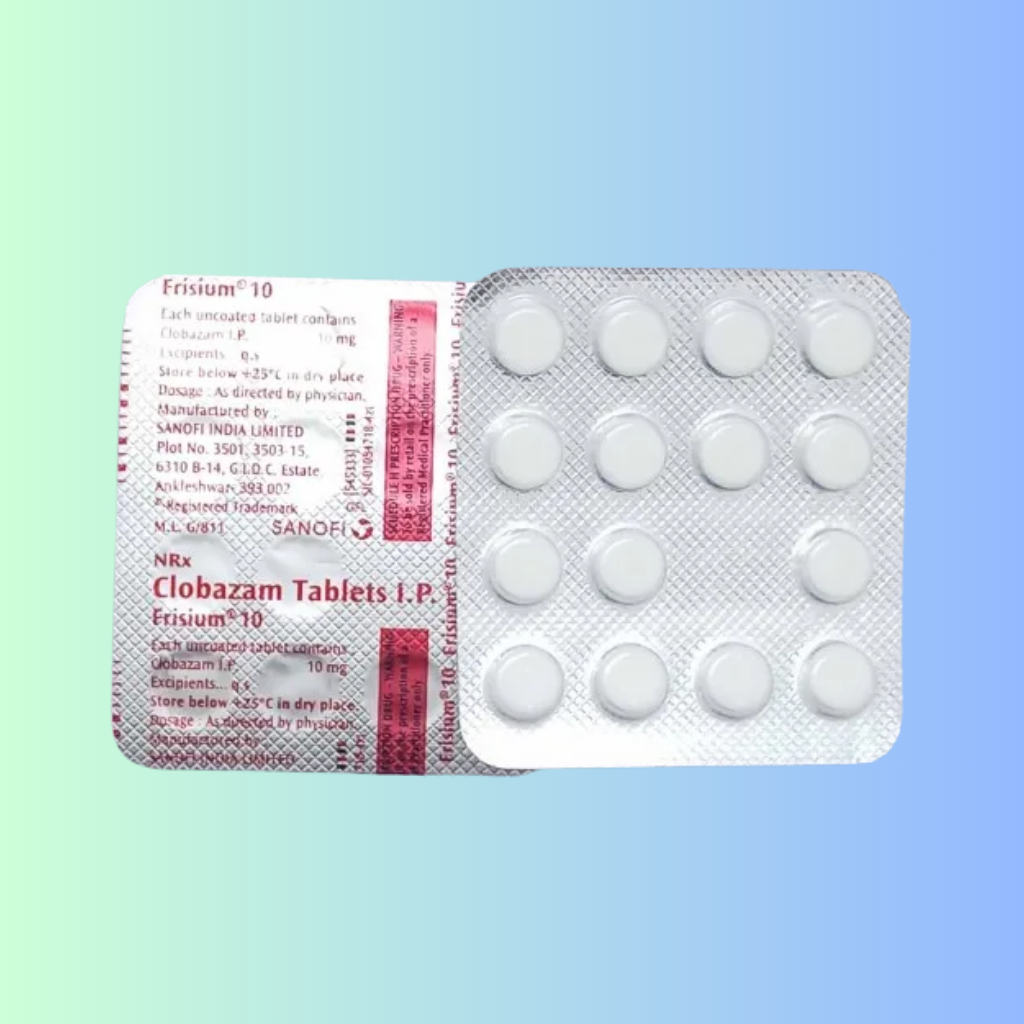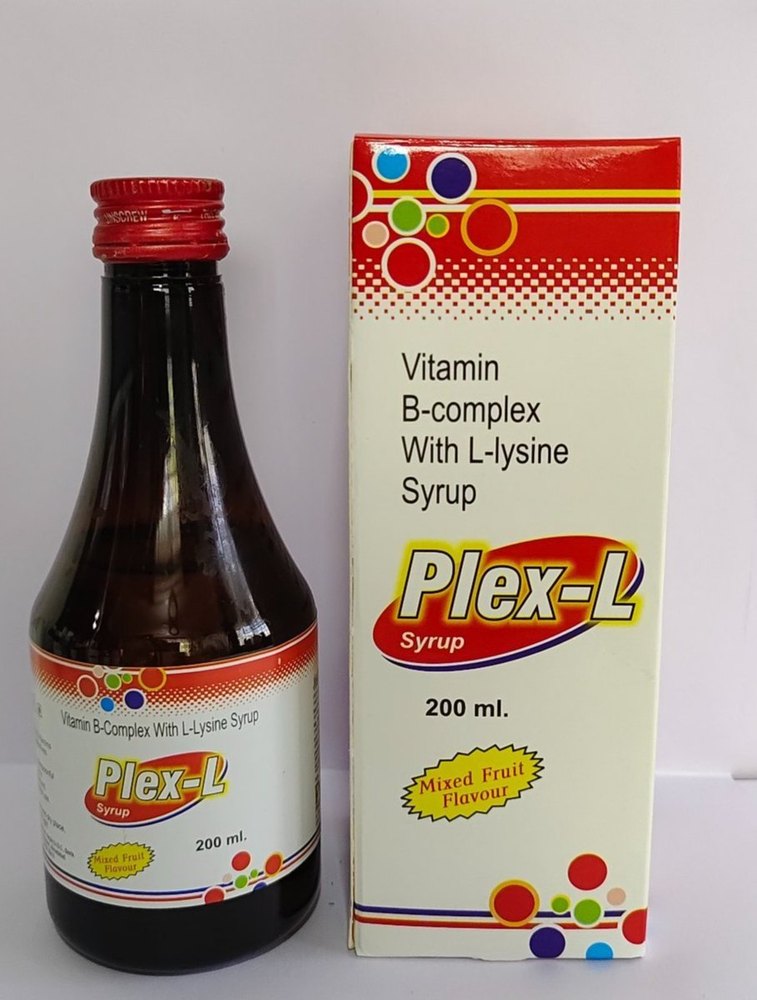Description
Frisium 10mg is a medication that belongs to a class of drugs called benzodiazepines. Its active ingredient is Clobazam 10mg.
Mechanism of Action: Clobazam works by enhancing the effects of gamma-aminobutyric acid (GABA), which is the main inhibitory neurotransmitter in the brain. By increasing the activity of GABA, Clobazam helps to calm excessive nerve activity, leading to a sedative, anxiolytic (anxiety-reducing), and anticonvulsant (anti-seizure) effect.
Uses and Benefits: Frisium 10mg is primarily used for:
- Epilepsy (Seizures): It is commonly used as an adjunctive therapy (in combination with other anti-epileptic medicines) to control various types of seizures, including partial refractory seizures and those associated with Lennox-Gastaut syndrome (a severe form of childhood epilepsy).
- Severe Anxiety: It can be used for the short-term treatment of severe anxiety that is disabling or causing significant distress. However, due to its potential for dependence, long-term use for anxiety is generally not recommended unless specifically advised by a doctor.
- Sleep disturbances associated with anxiety: In some cases, it may be used for short periods to help with sleep issues linked to severe anxiety.
Dosage and Administration:
- Frisium 10mg is an oral medication, typically taken as a tablet.
- The dosage is highly individualized and determined by a doctor based on the patient’s condition, age, and response to treatment.
- It can be taken with or without food.
- If the daily dose is divided, it is often recommended to take a larger portion in the evening to minimize daytime drowsiness. Doses up to 30mg daily can sometimes be taken as a single evening dose.
- It is crucial to take the medication regularly as prescribed.
- Do not stop taking it suddenly, as this can lead to withdrawal symptoms or worsen seizures. The dose should be gradually reduced under medical supervision.
Side Effects: Common side effects of Frisium 10mg may include:
- Central Nervous System (CNS) effects: Drowsiness, tiredness, dizziness, unsteadiness, impaired coordination (ataxia), slurred speech, confusion, headache, memory loss, difficulty concentrating. These are often most prominent at the start of treatment and may lessen over time.
- Gastrointestinal: Nausea, vomiting, constipation, dry mouth.
- Other: Weight gain, increased drooling (especially in children), muscle aches or weakness.
More serious but less common side effects that require immediate medical attention include:
- Severe skin reactions: Such as Stevens-Johnson syndrome (SJS) or Toxic Epidermal Necrolysis (TEN), characterized by severe blisters and peeling of the skin, affecting lips, eyes, mouth, nose, and genitals.
- Behavioral changes: Sudden anxiety, agitation, aggression, irritability, hallucinations, delusions, severe sleep disturbances, suicidal thoughts or behavior.
- Respiratory depression: Slow, shallow, or weak breathing, especially when combined with other CNS depressants like opioids or alcohol.
- Drug dependence and withdrawal: Prolonged use can lead to physical and psychological dependence. Withdrawal symptoms (e.g., depression, nervousness, sleep difficulties, sweating, upset stomach, or worsening of original symptoms) can occur if the medication is stopped suddenly.
Precautions and Warnings:
- Prescription Only: Frisium 10mg is a prescription medication and should only be used under the supervision of a healthcare professional.
- Dependence and Abuse Potential: Benzodiazepines have a risk of dependence and abuse. Use for the shortest possible duration at the lowest effective dose.
- Avoid Alcohol and Opioids: Concomitant use with alcohol or opioids can significantly increase the risk of severe drowsiness, breathing difficulties, coma, and even death.
- Driving/Operating Machinery: Due to potential drowsiness, dizziness, and impaired alertness, patients should avoid driving or operating heavy machinery until they know how the medication affects them.
- Pre-existing Conditions: Inform your doctor if you have:
- Severe respiratory problems (e.g., severe or chronic lung disease, sleep apnea).
- Severe liver impairment.
- Myasthenia gravis (severe muscle weakness).
- History of drug or alcohol abuse.
- Depression, psychosis, or suicidal thoughts.
- Kidney problems.
- Ataxia (problems with movement control).
- Children: Frisium is generally not recommended for children under 6 years of age for anxiety or sleep disorders. For epilepsy in children, it should be used with careful assessment of need.
- Elderly: Elderly patients may be more sensitive to the effects of the medication and require lower starting doses.
- Pregnancy and Breastfeeding: Not generally recommended during pregnancy, especially in the later stages, due to potential risks to the newborn (e.g., “floppy infant syndrome,” withdrawal symptoms). It passes into breast milk and is not recommended for use while breastfeeding. Discuss thoroughly with your doctor.
- Drug Interactions: Inform your doctor about all other medications, supplements, and herbal products you are taking, as Frisium can interact with many drugs, including other CNS depressants, certain antidepressants, antifungals, and antacids.
Additional information
| form | Oral Tablets |
|---|---|
| strength | 10 MG |
Be the first to review “Frisium 10mg” Cancel reply






Reviews
There are no reviews yet.